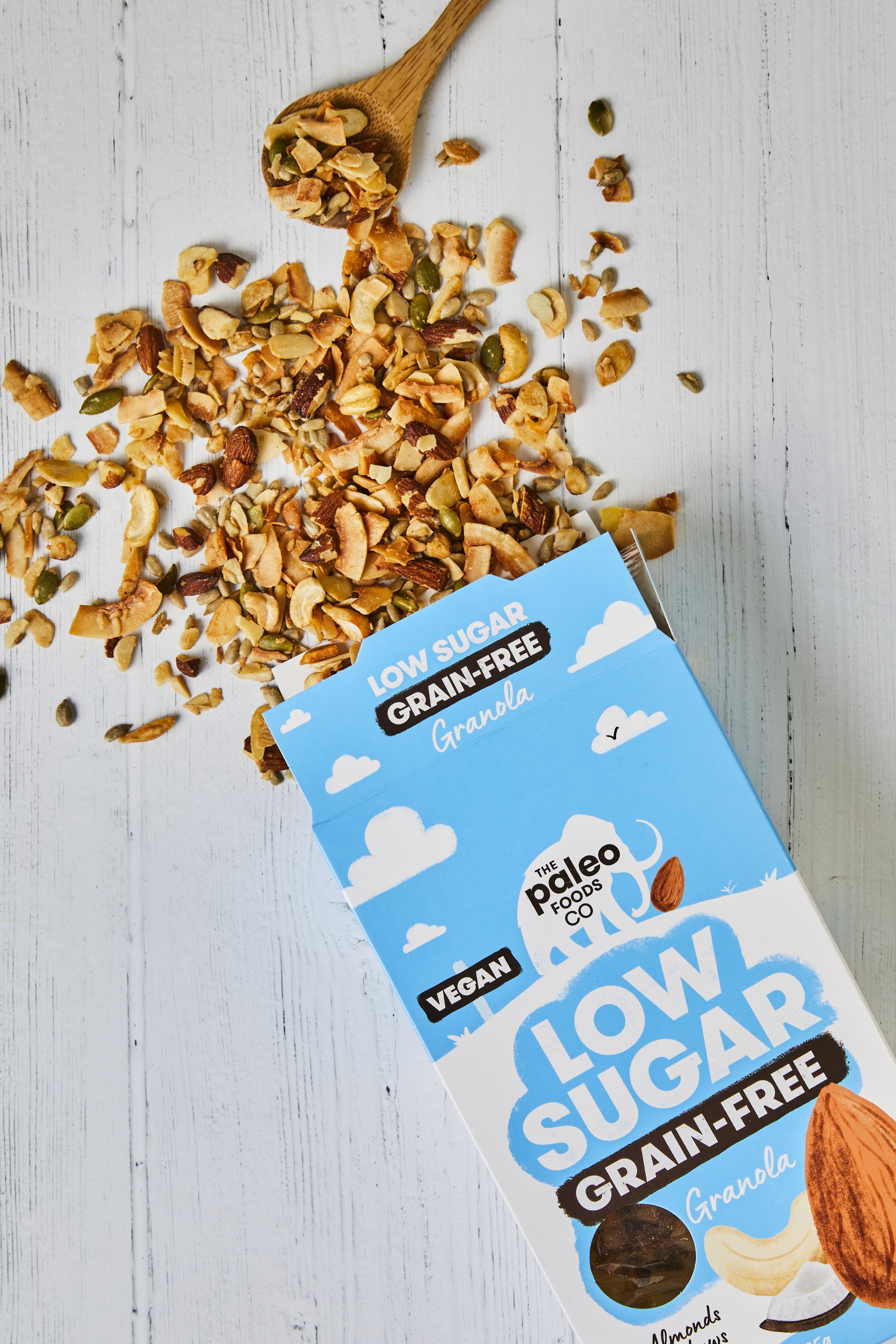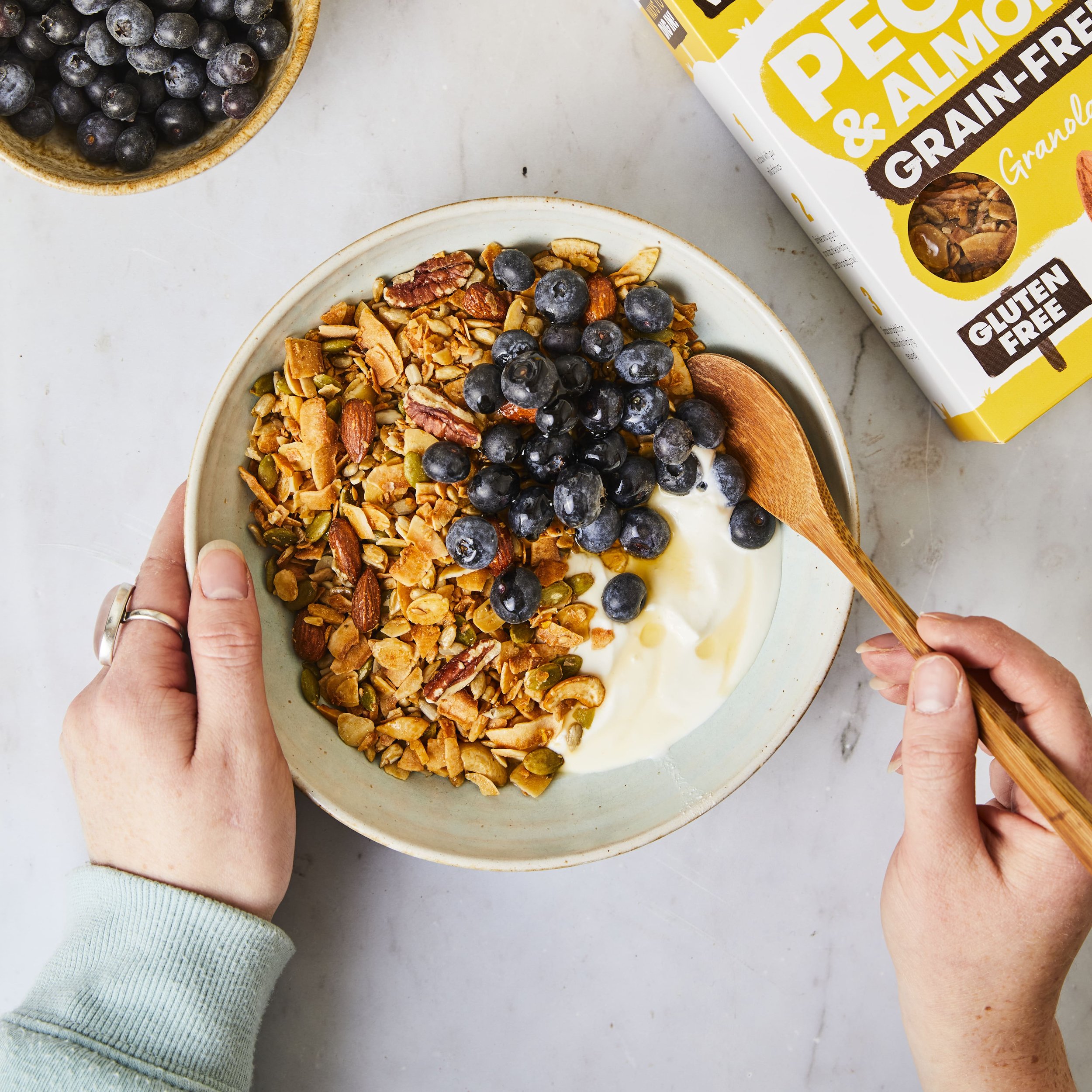We sat down with Clarissa to learn more about gut health and the benefits of reducing or removing the refined grains from our diet.
What is ‘gut health’ and why is it so important?
Gut health is the health of our entire digestive system, from the oesophagus to the bowels. Within the gut, you can find the gut microbiome - a collection of bacteria, fungi, yeast and more. A key part of good gut health is to ensure that these microorganisms stay balanced and that the commensal bacteria outweigh the non-commensal bacteria.
Looking after the health of our gut and ensuring we maintain the right balance of these microorganisms is key for our physical and mental health, overall immunity, well-being and more.
Gut health contributes to:
Skin health
Cardiovascular disease risk
Allergies
Mental health and mood - 95% of our happy hormone serotonin is created in the gut!
Immune system health - 70% of the immune system is located in the gut!
Weight management
And much more…
How do I know if I have a gut health issue? What symptoms should I look out for?
The list is endless! Health really does start in the gut, and so many symptoms that may even seem unrelated can be key signs of gut imbalance. Think skin changes, mood imbalances, susceptibility to colds and flus, weight gain, changes in sleep quality, lowered energy and more.
And when we think about signs stemming from the gut (mouth to anus) we can look for bloating, flatulence, reflux, burping, cramps, changes in bowel movements and pain - to name just a few!
What’s the difference between prebiotics and probiotics?
Think of probiotics as the flowers and plants that populate the garden of our gut microbiome. Each person’s gut microbiome is entirely unique. You can have lilies, ivy, shrubs… whatever plants you want. Every so often, external factors and neglect can damage your garden, and consequently, the garden needs re-populating. Enter in PROBIOTICS.
Probiotics are live bacteria that line your digestive tract and support your body's ability to absorb nutrients and protect against invading pathogens and disease. They are our guts best defence, and help swing overall bacteria balance towards positive, good bacteria. They are celebrated for their ability to help with digestion, boost immune function, reduce inflammation, improve mood and more. Probiotic foods include kefir, sauerkraut, kimchi, and miso- all of which have been fermented.
Whereas probiotics are live bacteria, prebiotics are not living, but instead act as food for those good and friendly bacteria in our guts.
Think of prebiotics as a fertiliser for the flowers and plants (aka the probiotic bacteria) in the garden of our gut flora! They feed the good bacteria, helping our good gut bacteria flourish and populate.
Prebiotics are soluble, fermentable, non-digestible fibres and carbohydrates, known as resistant starches, that help prebiotics do their job and do it well. Prebiotics by-pass the digestive process and head straight to the colon. It is here that they ferment into small chain fatty acids that help feed the gut bacteria. Prebiotic foods include onions, leeks, garlic, and artichokes.
What foods should I eat more of to promote a healthy gut?
Swap fruit juices for whole, fresh fruits. This will give you a fibre boost that your gut microbes will love, also aiding the elimination of toxins within the body. My favourite gut-loving fruits are stewed apples, kiwis, and berries.
Add live, fermented foods into your diet at least 3 times per week. These will benefit your gut health and mood - think kefir, sauerkraut, kimchi, and miso. They are all a great source of live cultures which may help to improve the composition of our microbiome.
Incorporate omega 3 fatty acids into your diet. Aim to have oily fish 3 times a week. Studies have shown that people who eat foods rich in omega 3, have more bacterial diversity in the gut.
Include polyphenol rich foods. Research has shown that polyphenols, a type of antioxidant, can have major impacts on gut health by increasing the volume of healthy gut bacteria which are known to improve immunity, help manage inflammatory diseases within the body and feed our gut bacteria. Consume dark chocolate, pecans, blueberries, herbs, and spices.
Eat fibre rich foods. Foods such as nuts, seeds, pulses, and fruit and veg (with their skin on!)
What foods and drinks should we reduce or eliminate to improve our gut health?
Stick to whole, natural foods and avoiding overly processed foods as much as possible. Added preservatives, emulsifiers, glazing agents and trans fats can all trigger nasty gut health symptoms and are not beneficial for our health in general.
Alcohol is one of the most aggressive compounds when it comes to our gut health. When in excess, alcohol can damage the lining of the gut making it harder for us to absorb certain nutrients whilst killing off our friendly, commensal bacteria in the gut. This can lead to an overgrowth of opportunist, “bad” bacteria, resulting in a mismatch of the microbiome and potentially dysbiosis.
Do some research into a non-alcoholic drink that will work for you at social events. I love swapping out a G&T for a gut-loving kombucha!
Another major offender is unfortunately sugar. High consumption of refined sugar can lead to an increase in free radicals, which can cause oxidative damage in the body, revealed through changes in our skin, hair, nails, gut health, and energy levels.
Natural sugar substitutes such as stevia and monk fruit are safe to use as sugar alternatives, however, some individuals are sensitive to sweeteners and may experience side effects such as an upset stomach or bloating. I do not recommend artificial sweeteners, as they can irritate the gut and have been shown in studies to disrupt the health of our microbiome. (Suez J et al. Artificial sweeteners induce glucose intolerance by altering the gut microbiota. Nature. 2014;514:181-6.)
What are the main benefits of reducing refined carbs and refined grains from our diet?
Complex carbs come in their natural form, think sweet potato, quinoa, brown rice, and oats. They are naturally high in fibre, vitamins, and minerals and therefore digest at a slower rate, whilst not spiking blood sugar levels.
However, processing these carbs often strips out nutrients, resulting in white bread, white pasta, bagels, and doughnuts. They do not have anywhere near the nutritional value that the wholegrain versions contain, so are not beneficial when it comes to our health. These refined carbs tend to cause blood sugar spikes which can lead to a subsequent crash, triggering hunger and resulting in additional food cravings.
The main benefits of elminating refined carbs & refined grains include:
Balancing blood sugar levels
Improving insulin sensitivity
Weight Management
Improved energy
Reducing inflammation in the gut
Dietary focus on other wholefoods including protein and fat
Why is grain-free granola better for your gut health than standard oat-based granolas?
As much as I love granola, the majority of granolas on the market are packed with all sorts of inflammatory oils, sugars and even flavourings and additives. Cereals filled with these ingredients can leave you with imbalanced blood sugar levels, leading to sugar highs and lows. Some contain up to 5 different types of syrups and sugars!
Opting for grain-free granola that is instead, loaded with healthy fats and plant protein, can help support balanced blood sugar levels and all-day energy.
I am a big fan of the Paleo Foods Co grain-free granola, with up to 30% nuts and other nutritious ingredients such as chia seeds, coconut oil and coconut blossom nectar, this granola is high in protein and healthy fats, making it a great low-carb breakfast option or mid-afternoon snack. It also contains a good punch of fibre from flax seeds to keep you satisfied till your next meal, whilst benefiting your gut microbes, skin health and energy levels all at once.
Outside of gut health, who else can benefit from reducing or eliminating refined carbs and refined grains?
A low-carb diet can be beneficial for those trying to manage their weight. Carbohydrates substantially impact our blood sugar levels, triggering insulin to be secreted. Over time, insulin becomes less sensitive, and more and more is required to balance our blood sugar levels. This is often referred to as insulin resistance, which leads to the body storing excess sugar as fat. Opting for a lower carbohydrate diet can help to reduce the release of insulin and improve insulin sensitivity.
Eating low carb is a flexible way of eating, and can be broken down into:
Moderate carbohydrate- 130-225g of carbs a day
Low carb- Under 130g of carbs a day
When adopting a low-carb diet, individuals should increase their fat and protein intake, to ensure they are getting the nutrients they need through other food groups, and to ensure they are consuming enough energy throughout the day to make up for the lack of carbs.
PCOS Many women who suffer with PCOS also have insulin resistance and struggle with weight loss. Because low carbohydrate diets are effective at treating insulin resistance, it can also be a helpful tool for those with PCOS. One study found that even a small reduction in carbohydrates can lead to significant improvements in hormones and other metabolic risk factors.
What breakfasts do you recommend to your clients?
When it comes to breakfast, I always recommend something high in protein and low in sugar to start the day the right way.
If granola is your breakfast of choice, pairing a grain-free or low sugar granola with a high protein organic Greek yogurt and a portion of low sugar fruit such as berries or kiwi, is a great way to start the day.
Another great breakfast option is a veggie omelette as one can pack lots of different vegetables in, along with eggs which are a superfood powerhouse, high in healthy fat and protein.
Alternatively, if you don't find you have a big appetite first thing, a smoothie can be a great option when made up of 3 different veggies, 1-2 portions of fruit, 1 tbsp of nut butter and a good quality protein powder.
Thank you so much to Clarissa for your insightful and helpful answers. You can find out more about Clarissa and what she does, here.




